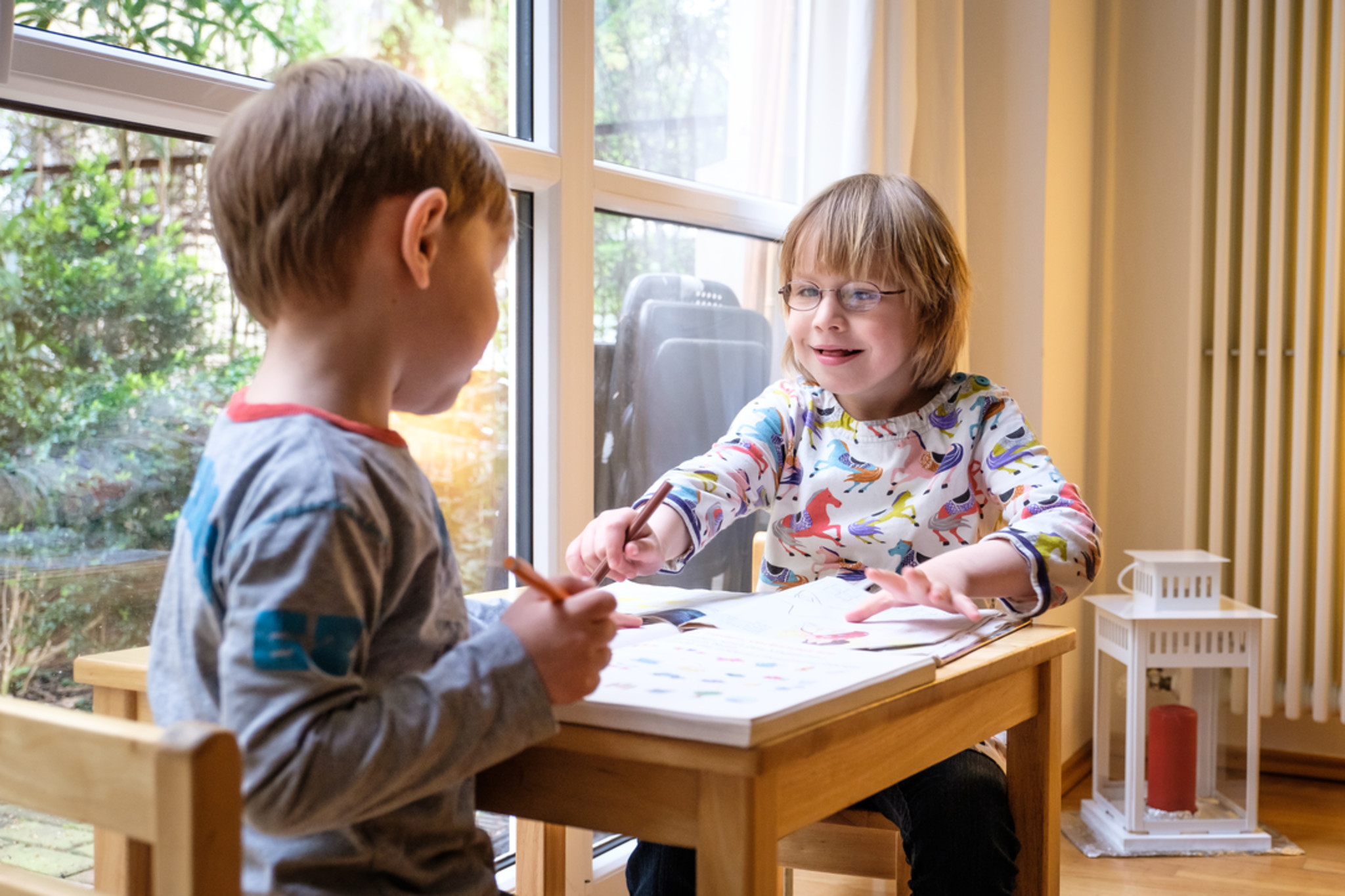Structures > Guiding principles and procedural principles
Inclusion
From 2028 the plan is that child and youth services will be responsible for services for all children and adolescents with and without disability (known as the “inclusive solution”). The specifics are still unclear.
The 2021 Act to Strengthen Children and Youth (Kinder- und Jugendstärkungsgesetz) for the first time ever introduced an express obligation on providers to inclusively further develop child and youth services and, in so doing, gave the official green light for all support and task areas.
Despite a continued legal focus on disability-related barriers to participation, the principle of inclusion is also being discussed with regard to incorporating other social barriers to participation (e.g., poverty) (referred to as the broad understanding of the term inclusion).

Notes
The presence of a disability is often at the heart of social exclusion issues, and child and youth services is no exception – despite the fact that, in theory at least, its duty to provide education and care under Article 1 of Book 8 of the Social Code (SGB VIII) applies equally to all children and adolescents and their families (see also Child and youth services and inclusion).
Following decades of wrangling over (departmental) policy, in 2021 the legislature has now decided in principle to move towards inclusive child and youth services with the enactment of the Act to Strengthen Children and Youth (Kinder- und Jugendstärkungsgesetz/KJSG), which lays down a step-by-step plan for implementation:
- The Act aims to definitively reverse, from 2028, the exclusion of children and young people with physical and/or intellectual disabilities from Book 8 and group all children and adolescents together as service beneficiaries (often referred to as the "inclusive solution/overall responsibility of child and youth services"). First, the (co-)responsibility for safeguarding equal participation for these young people in society, medical care, school and work will transfer from the integration support system to the child and youth services system.
Second, it will be easier to recognise and address their educational needs as well as the needs of the family unit (siblings and parents) for support and relief. At the same time, the large number of questions raised by the amalgamation of these two systems now means that matters pertaining to professional and structural implementation in practice of teh reorganisation of welfare jurisdiction will be handled in a follow-up lawmaking process.
To ensure overall responsibility actually transfers to child and youth services effective 1 January 2028, a corresponding statute must enter into force by 1 January 2027 (Article 10 [4] of Book 8 in conjunction with Article 9 KJSG). - That said, KJSG has already incorporated a number of material changes and significantly strengthened the inclusive focus of Book 8. The objectives of (Article 1 of Book 8) and the philosophy underpinning the structure of support and tasks (Article 9) have been extended to include responsibility for safeguarding equal participation, including in the form of obligations to minimise barriers across all tasks (counselling, taking into custody, support service planning "in a discernible form").
Protection for children with disabilities – an aspect severely lacking in the past – will be expressly addressed by way of an obligation to demonstrate appropriate expertise in recognising and dealing with risks and problematic situations in disability-specific contexts (Articles 8a, 8b). The rules on inclusivity in child and youth services (Article 11) have been tightened, as have those on joint care in child day-care facilities (Article 22a). Financing for services is now systematically tied to a requirement for inclusive support structures (Articles 77, 78b), and inclusive youth services planning as a basic task has also been incorporated (Article 80).
With the aim of mitigating, where possible, the existing (until 2028) responsibility split and the exclusion of children and young people with physical and/or intellectual disabilities and their families who come under Book 9 of the Social Code (SGB IX), the youth welfare offices must always be involved in the process of planning integration support.
Moreover, from 2024 children and young people with physical and/or intellectual disabilities are to receive additional support from the youth welfare office in the form of independent advice and guidance with applying for, following up and enforcing integration support services.
Whilst inclusive services were already available before the KJSG, the Act marks the first-ever call for a binding and nationwide process of continual development in all areas of child and youth services support and work, incorporating concrete expert and conceptual reflections and adapting practice correspondingly. However, further basic knowledge must be acquired through research, with a particular focus on research involving young people and their families, and corresponding initial and further training must be developed and provided for youth work professionals.
Despite the current overriding focus on the barriers to participation faced by children and adolescents with disabilities, there is a keen awareness amongst practitioners and in (departmental) policy discussions of the need to expand the principle of inclusion and inclusive tasks to include other social barriers to participation (such as poverty, migration).
Further reading
- Bundesministerium für Familie, Senioren, Frauen und Jugend (BMFSFJ) (2022): Gemeinsam zum Ziel: Inklusive Kinder- und Jugendhilfe gestalten (last accessed: 10 June 2023).
- Graßhoff, Günther/Hinken, Florian/Sekler Koralia/Strahl, Benjamin (Hrsg.) (2023): Kinder- und Jugendhilfeplanung inklusiv – Planung und Gestaltung von Angeboten der Kinder- und Jugendhilfe für und mit alle(n). AFET-Eigenverlag.
- Von Boetticher, Arne/Kuhn-Zuber, Gabriele (2022): Rehabilitationsrecht; Baden-Baden.


